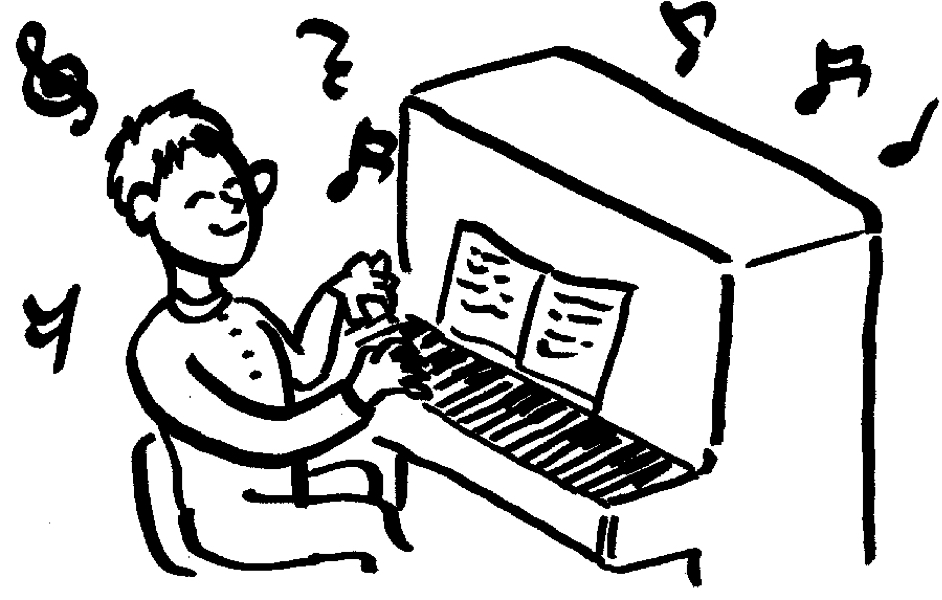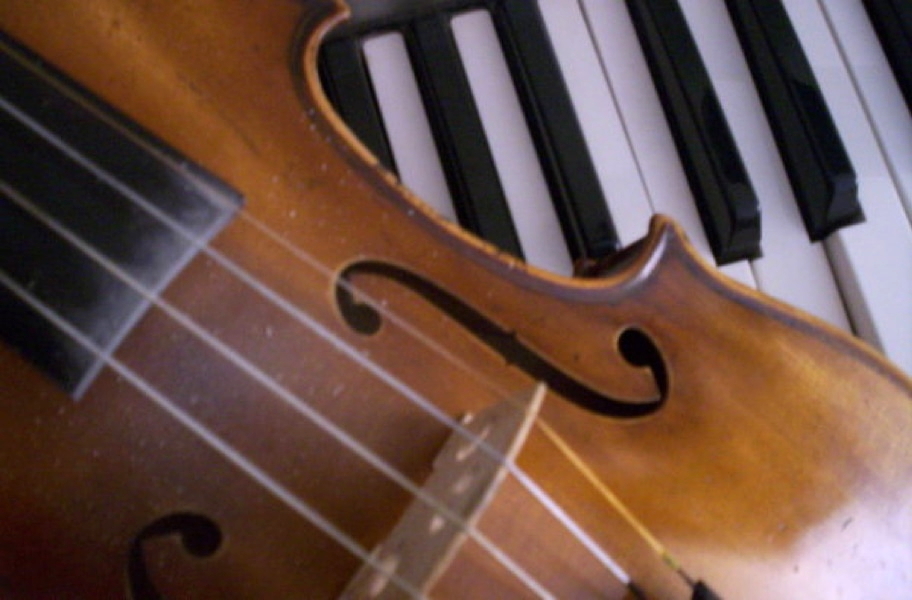
Sight singing
I realise that many instrumentalists find sight-reading difficult. However, they should spare a thought for singers. Except for those who have perfect pitch, singing at sight is a lot harder than playing at sight on an instrument.

I realise that many instrumentalists find sight-reading difficult. However, they should spare a thought for singers. Except for those who have perfect pitch, singing at sight is a lot harder than playing at sight on an instrument.

This page is a note about how I teach students how to practise. What areas they should include and what technique can help them improve pieces they are learning.

The best way to improve your sight-reading at the piano is to play a lot more music, and have a teacher guide you about what you are doing right, and what you are doing wrong. But there are lots of books on the market that can help.

There seems to be a view that 8 years old is a good age to begin piano lessons: by that age children have sufficient mental and physical capacity, etc. But is it true?

Some pianists, (many well-known concert artists, in fact) find playing from memory easy, and some find it very difficult. The pointers in this article, from Pianist magazine, may help.

Students need help with their dancing. Being able to identify a waltz (oom-pah-pah), or a Sarabande (slow, in three, and 'sits down' on the second beat) from their distinctive rhythms and texture is useful in itself, but there is an added bonus.

There are too many scales in ABRSM piano exams: far more than for other instruments - and I have sat across the table from the chief examiner and told her so. Why are there just scales and arpeggios and not technical exercises, as for other instruments?

If you are an A-level (or prospective A-level student), who needs to improve their keyboard skills, then here is a possible syllabus that I would suggest, with resources for the first year of lessons.

Many people struggle with sight-reading at the piano. But not all for the same reason or reasons. Here are some common problems, together with my solutions to them.

Old editions have their uses. The old Novello edition of Chopin Nocturnes has a very helpful table of the fioriture (fast florid passages) in the Chopin Nocturnes, with an interpretation by Frank Merrick of how to play them.

Singers often have to work from memory, in opera, for example. So, ABRSM singing exams require all song to be memorised. What is the best way to memorise vocal music? Different things work for different people.

I have been delivering a crash course in ABRSM Grade 5 Music Theory this week, for some nice people in Stamford (UK). They called their course Music Theory Fast, and whilst I cavilled, of course, at the grammar, I liked the double meaning of "Fast": we did it quick, or rather quickly, and hopefully it will stick fast.
We use cookies for the best online experience. By using this website you agree to the cookie policy.